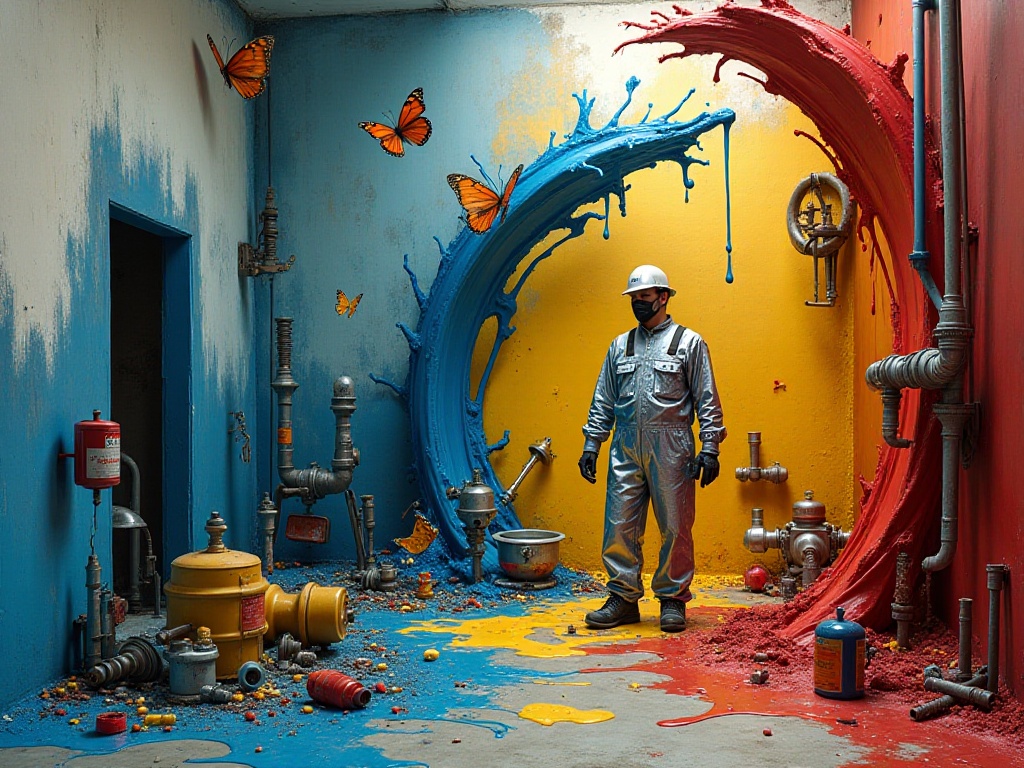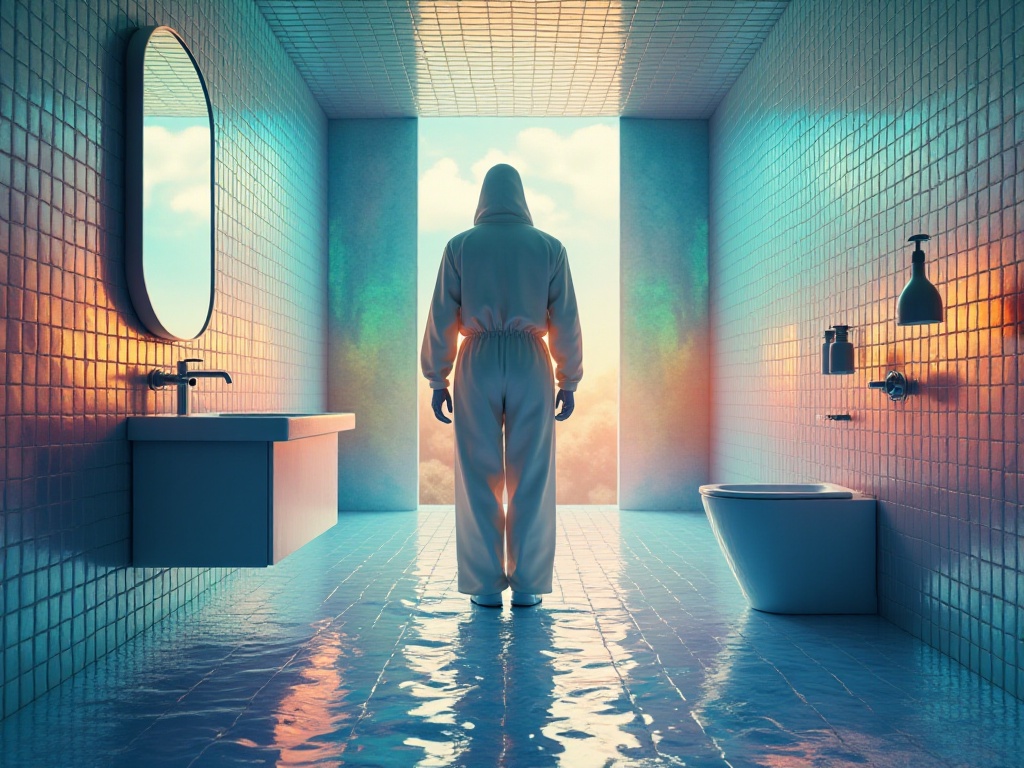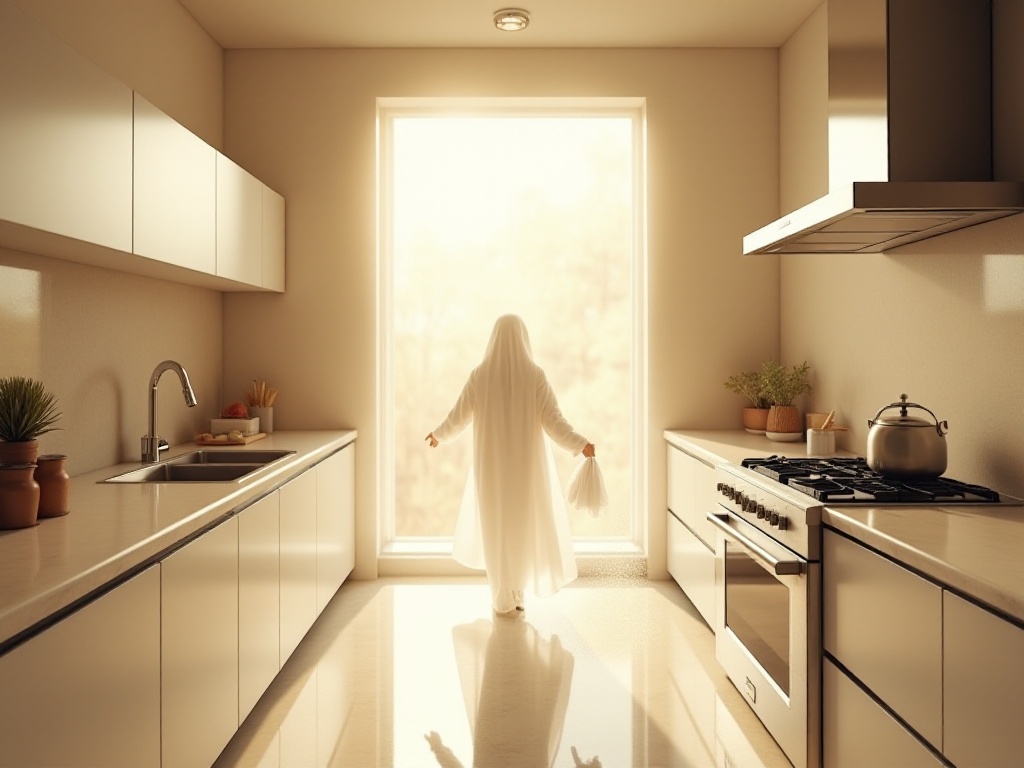Introduction
After moving out on my own, I discovered that living alone isn't as easy as it seems. I kept finding issues around the house but didn't know how to handle them. As a beginner learning about home maintenance, I've compiled all the pitfalls I've encountered and advice from professionals I've consulted, hoping to help others who are just starting their independent living journey.
To be honest, I initially thought home maintenance was particularly troublesome, but after some practice, I discovered that it's actually quite simple once you master the right methods. Now I only need 30 minutes each month to keep my home in perfect condition, and I no longer worry about unexpected problems.
Safety First
Safety is not something to be taken lightly. Recently, there was a fire in our complex because one household's smoke detector had run out of battery, and they didn't notice when their cooking caught fire. This made me realize the importance of home safety equipment.
Now I designate the first weekend of each month as "Safety Day," where I check all safety equipment without fail. First is the smoke detector, which is really important. When I first moved in, I had no idea how to test it, but after looking it up online, I learned that you just need to press the test button - hearing the "beep" means everything is normal.
I also bought a carbon monoxide detector because I heard carbon monoxide poisoning is particularly dangerous and it's colorless and odorless, making it impossible to detect. The testing method is similar to the smoke detector - just press the test button. To remember to change the batteries, I set a reminder on my phone to replace them every six months.
I have to mention an embarrassing incident here. One time I was woken up by the alarm in the middle of the night, thinking something was wrong, only to find out the battery was running low. Since then, I've marked battery replacement dates on my phone calendar, and haven't had any such false alarms.

System Inspection
System checks are truly high-value work. Last summer, my air conditioner suddenly stopped cooling. When the repair technician came, it turned out the filter was too dirty. That repair cost me several hundred dollars, and having no AC in the heat was a nightmare.
Since then, I've developed a habit of checking three major systems monthly: HVAC, electrical, and plumbing. Honestly, this work isn't difficult at all, and it's really useful.
Let's start with the HVAC system. Air conditioner filter cleaning is really important - when dirty, it not only affects cooling efficiency but also increases electricity bills. I now check the filter monthly and clean it immediately if I find dust. The cleaning method is simple: vacuum off surface dust, rinse with clean water, and reinstall after drying.
Checking the outdoor AC unit is also important. My unit is on the balcony, and I always find lots of dust and leaves during inspections. Clearing debris around the unit is crucial, otherwise it affects heat dissipation.
For the electrical system, checking wires is most important. Some outlets in my home are poorly positioned, so the wires often get rubbed by furniture. I pay special attention to checking these areas monthly for wire damage. If I find worn insulation, I replace it immediately - this isn't something to neglect.
The ground fault circuit interrupter is literally a lifesaver. Testing is simple - just press the test button, and if it trips immediately, it's working properly. I test it monthly because I've seen too many news stories about fires caused by electrical malfunctions.
Plumbing system checks mainly involve looking for leaks. I've developed a habit of checking drain pipes after using faucets. The kitchen drain especially needs attention because it frequently handles oil and water disposal. If you find water marks at pipe joints, address them promptly to prevent bigger problems.

Kitchen Maintenance
The kitchen is used daily, and its maintenance directly affects our quality of life. I really regret not properly maintaining kitchen equipment initially, which led to many items having problems after short use.
The refrigerator is one of the kitchen's biggest power consumers. I didn't know the condenser coils needed cleaning until I noticed a sudden increase in electricity bills. Later I learned that dust accumulation on the coils affects cooling efficiency and increases power consumption. Now I vacuum the coils monthly, with notable results.
Microwave cleaning was also challenging. I used to just wipe it with a damp cloth, but stubborn grease wouldn't come off. Then I learned a simple method: heat a cup of white vinegar in the microwave for 3 minutes. The steam softens stubborn grease, making it easy to wipe clean.
Stove maintenance is also important. I now wipe the stovetop with special cleaner after cooking to prevent grease buildup. The gas stove burners especially need regular checks for grease blockage, which can affect combustion and potentially produce carbon monoxide.
If you have a dishwasher, it needs regular maintenance too. I clean it monthly with special cleaner to prevent limescale buildup and extend its life. The filter especially needs regular cleaning, otherwise it affects washing performance.

Bathroom Rules
Bathroom issues mainly involve moisture and mold. When I first moved in, I completely ignored this, resulting in mold quickly appearing in the corners, looking unsightly and creating odors.
Installing a timed exhaust fan was one of my wisest decisions. Now I run it during showers and for 15 minutes after, which prevents moisture problems.
Drains need regular cleaning too. I pour special drain cleaner weekly to prevent hair and dirt blockages. I once ignored this and nearly had a flood from a blocked drain.
Shower curtains are prone to mold. I now use a mold-resistant curtain and leave it extended after showers to dry completely. If mold appears, it can be cleaned with diluted bleach.
Toilet cleaning is also important. I scrub weekly, especially the gaps under the seat where dirt easily accumulates. If you notice the tank leaking, repair it promptly to avoid wasting water and increasing water bills.

External Inspection
External checks mainly involve the roof and drainage systems. Even in an apartment, balcony and window drainage systems need regular checking. It's especially important to check for drain blockages before rainy season.
I have several plants on my balcony, and fallen leaves often block the drains. I now check drains monthly and clear any leaves immediately. While somewhat troublesome, this prevents many problems.
Window seals also need regular checking. Replace them promptly if damaged or degraded to prevent rain leakage. Poor sealing also affects insulation and increases electricity bills.

Closing Thoughts
Through this practice period, I've really found that home maintenance isn't as difficult as imagined. The key is developing habits of regular inspection and maintenance. I've now integrated these tasks into daily life, doing a little each day without feeling burdened.
Most important is having a preventive mindset. Just as we get regular health checkups, home equipment needs regular "checkups" too. This not only saves on repair costs but keeps your home in optimal condition.
These experiences have accumulated gradually, and I hope they help everyone. If you have good maintenance experiences, please share in the comments. Let's create comfortable homes together!




